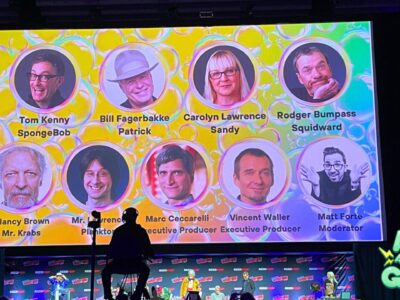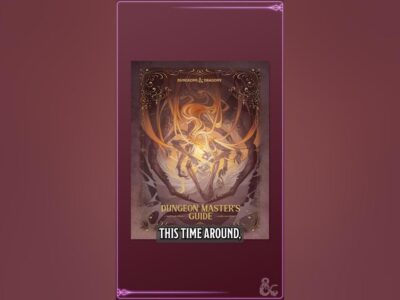
[ad_1]


There’s little question in my mind that Paul Thomas Anderson is America’s best living filmmaker. Sure, you can challenge me with your Scorseses and your Tarantinos and your Malicks and whomever else. But over the last 25 years, it’s difficult to think of another filmmaker who has built up as much of a bullet-proof resume as Anderson since his mainstream breakout in 1997’s Boogie Nights. Even his somewhat iffy dalliance with Adam Sandler nearly two decades ago still has a lot to recommend, which is more than I can say for many auteurs’ more misguided notions.
But since 2007’s There Will Be Blood, which entered the filmmaker into a new stratosphere of artistic relevance, he’s been on a hot streak. Every film Anderson produces is a major event among cinephiles, myself obviously included. And while years later I’m still trying to suss out my feelings about Inherent Vice, the rest of his output has been basically perfection. To wit, both The Master and Phantom Thread entered The Beat’s best films of the last decade. It’s got to be immensely challenging to continually top yourself, but that’s the environment PTA (as everyone likes to call him) finds himself in with his latest, Licorice Pizza, a sun-drenched ode to early 70’s San Fernando Valley living.
The film marks a pretty big pivot in his work. Sure, he captured a bit of this era and locale in the aforementioned Boogie Nights, and its lovelorn approach is somewhat reminiscent of Punch Drunk Love. But in the current phase of his career, Anderson has been fairly “literary” with much more challenging material. He adapted Pynchon (both directly and indirectly), for crying out loud. So the turn towards bildungsroman is a curious one until you analyze the bones and recognize that this work is informed by a number of influences that caught his brain at a given time. In this case, it’s a highly fictionalized take on producer Gary Goetzman’s experience as a child actor, melded with Anderson’s witnessing of a junior high student attempting to flirt with his photographer at a picture day. There’s some other ideas at play here too, including a broader peek at youth culture in this time and place, and life during the oil embargo of the Nixon administration, but all of this mixes to form the core story of Anderson’s two protagonists, the teen actor Gary Valentine (Cooper Hoffman, son of longtime PTA collaborator Phillip Seymour Hoffman) and Alana Kane (Alana Haim, of the band Haim).
This isn’t really a typical love story, and I’m not even sure love is the right word to use here. Gary, a 15 year old, is infatuated with Alana, a 25 year old (supposedly), and they form a very intense bond that is a little more than platonic, but never quite romantic. When Gary needs a chaperone for a trip to New York for an appearance on a pseudo-Ed Sullivan like show, Alana joins him for the ride. When his acting opportunities dry up, he decides to start a waterbed delivery service and Alana becomes his partner, and so on.
This is a film that’s about two people who are in very different places in life. Gary is simply coming into his own as an individual transitioning out of boyhood, while Alana is trying to find herself under the expectations of adulthood. Both stories are coming of age tales that are consistently intersecting but also following their own paths. Each could easily be the lead of lesser movies (and have been! Many times over). But they create a partnership of support as they navigate an increasingly chaotic sun-soaked landscape.
And what environs. Beyond just the beating heart its two outstanding leads provide, it’s the sheer unpredictability of what’s to come in each successive scene that enriches the film to god-tier status. Each sequence finds this duo coming into the orbit of larger than life characters that will shape their journey in some way, from Sean Penn’s analogue for the legendary William Holden, to Harriet Sansom Harris’ acting agent who brings a new definition of intensity to that process, to a young up and coming Los Angeles councilman running for Mayor, Joel Wachs (played by another wonderful filmmaker Benny Safdie).
But of course the real scene stealer is Bradley Cooper bringing to life the infamous hairstylist turned producer Jon Peters. In what may be the finest 20 minute stretch that Anderson has ever filmed, Cooper turns the guy that wanted to make Superman “wrassle” polar bears into a sexual tornado who wrecks absolute havoc in the Hollywood Hills and provides a key turning point for one of our leads. It’s a sequence that’s as intense and thrilling as anything I’ve seen this year, and while I generally have little interest in short-lived roles winning Oscars, I’m fully on-board the Cooper for Best Supporting Actor train.
As soon as the credits rolled, I genuinely wanted them to run the movie all over again so I could continue to luxuriate in this world. It’s the best and most vibrant coming of age story since Fast Times At Ridgemont High, and while it still contains many of the narrative hallmarks of what we define as PTA’s work, this is probably the first film of his that I could actually recommend to “regular people”. I mean, even Boogie Nights had all that adult content to contend with…and yet with that said, it never feels any less weighty than something like Phantom Thread or The Master.
In a recent rewatch of all his past work, I noted you can trace how each movie is informed by his previous films, made up of those building blocks and tools that he continues to hone. With Licorice Pizza, he employs that razor sharp literary approach into something that approaches genuine populism, without ever feeling like a step back. An impressive feat.
I’m in love with this movie and I can’t stop thinking about it. There’s no chance you’re going to find anything better this year.
You can find more of Kyle Pinion’s work at ScreenRex
Related


[ad_2]





